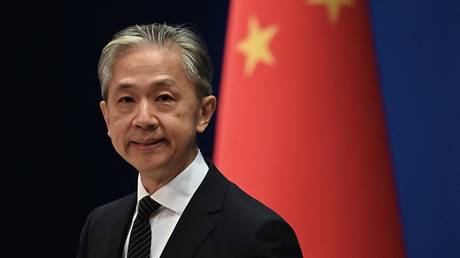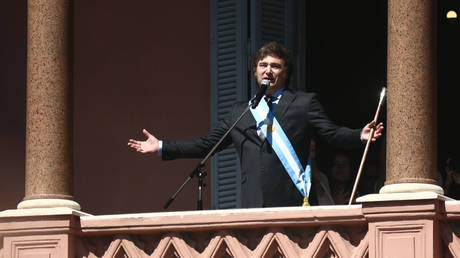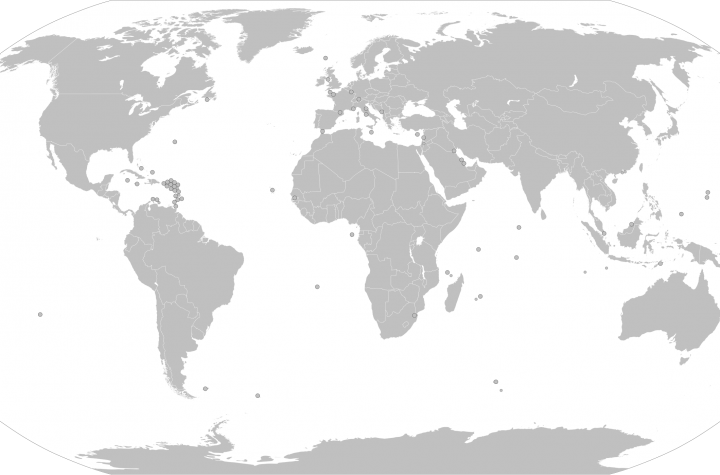
Leah McGrath Goodman has been banned from the UK for a period of one year. The full article from her blog has been pasted in below.
I first heard of Leah McGrath Goodman after her appearance on the Keiser Report. She was talking about her new book, The Asylum, highlighting the activities of the NYMEX. An excellent book, available from all good book stores.
This is her appearance on the Keiser Report
This is the article highlighting her detention at Heathrow Airport
Anarchy In The UK?
Haut de la Garenne, Jersey, 2011
The following story was commissioned by The Guardian after I was detained, questioned and banned from the United Kingdom in the wake of research for my next book in the Channel Islands, a $1 trillion tax haven off the coast of England. Many of you have asked what I have been working on — this is what I have been working on. My misadventures, along with those of several others whose names I am honored to see mine beside, are cited in The Guardian’s print edition today. I am fine, although I may now be the only member of the London Speaker Bureau not allowed to speak in London. I will truly miss the UK’s savory fish pies.
—
When I was 29 and first embarking on my writing career in London, I discovered a beautiful island off the coast of England that I would return to many times in the years to come. Jersey not only has heavenly beaches and culinary delights, but the people of the island are some of the loveliest I have known. After a busy week in the City, a puddle-jump flight could see me there in less than an hour, soaking up the sun on the white sands under wildflower-draped cliffs. The island’s locals would sometimes hint that Jersey’s pristine exterior belied a dark side. But I couldn’t imagine it. How could a place with such warm people have a dark heart?
When I returned to the U.S. in late 2008 with my first book contract, it came as a shock when I witnessed, from a distance, Jersey’s horrific child abuse scandal. Day after day for weeks, I watched the deputy chief of police, Lenny Harper, give interviews to a crush of international press outside the shuttered orphanage of Haut de la Garenne. Harper seemed increasingly alarmed over the human remains his team was finding inside, although what to make of them was hotly debated by the media.
The islanders, who are quiet people, were quietly devastated. The notion that, for decades, their children’ homes might have been used as a sexual cafeteria for the rich and privileged – as hundreds of the victims contended – was distasteful in the extreme. During the probe government officials repeatedly stated that they fully intended to run a thorough investigation. Yet, within months, Harper and his boss, the island’s head constable, Graham Power, had been smeared by the local newspaper, The Jersey Evening Post, as unfit for their jobs and driven from the island. Their main advocate, Senator Stuart Syvret – then-health minister and one of the island’s most popular politicians – also found himself under siege, eventually sacked and jailed twice. The cases made against each man were as flimsy as the headlines were flashy.
It seemed that anyone who attempted to stand up for Jersey’s underprivileged or conduct a proper investigation into their treatment soon found themselves in the fight of their lives.
Evidence found at Haut de la Garenne – including bones that were “fresh and fleshed” before being burned and dozens of children’s teeth with the roots still on them in the furnace area – was turned over to a new police chief who downplayed its significance but also admitted to throwing some of it out. As an investigative journalist, I found it hard to understand how this could possibly inspire confidence. It seemed the situation needed to be looked at by someone without an axe to grind or an ass to save.
After I passed in my first book, which also focused on cultures of corruption (The Asylum: The Renegades Who Hijacked The World’s Oil Market, HarperCollins 2011) I began to travel to the UK on a regular basis to conduct interviews with the victims, senators and law-enforcement officials.
This is where my own troubles began…A couple years into my research, my trips to the UK were becoming frequent enough to justify my renting a flat for overnight stays and an office for my paperwork. Jersey has strict rules about outsiders renting property, so I arranged to meet with Jersey’s Customs and Immigration officials in July 2011 to make sure my accommodations passed muster. I was told they did. The first officer I met with, Jim Griffiths, told me not to worry and that as long as I did not intend to live in Jersey or take a job there – and my trips did not exceed the six-month time limit for visitors – I could proceed with my work. When he asked what I was researching, I was completely honest. He quickly excused himself and then returned with his superior. The two men proceeded to shout at me. I was told that I needed to get a long-term entry visa to conduct my work on the island. I asked if they had changed their minds due to the nature of my research. The two men would not answer the question and immediately escorted me out.
A week later, I went home to the States to do other work and did not return to the UK until early September. I was on my way to speak at a bank conference in Salzburg, but had meetings in London and Jersey with other journalists. This time, the border check at Heathrow Airport asked me if I would go to a waiting area to answer additional questions about my stay. This had never happened to me before, but I was not very concerned and agreed. No one asked me any questions, though. Instead, a second border official took me to an empty room beneath the airport and simply locked the door behind me. I did not at any time consent to being imprisoned. My luggage, wallet, phone, bank cards and my identification were taken from me. If I’d been turned out on the street at that moment, I would have been utterly helpless to feed myself or prove who I was. There is no way to explain what this feels like until it happens to you, but until then I never realized the razor-thin line between feeling secure and feeling endangered.
I asked the guards what was happening and I was handed a piece of paper that said, “You have been detained under paragraph 16 of Schedule 2 to the 1971 Act or arrested under paragraph 17 of Schedule 2 of that Act.” What did this mean? Was I being arrested? No one would say. I was fingerprinted and photographed. I asked the personnel watching me if I could call my solicitor or my consulate. “That’s what people always say,” one of the staffers said. I asked: What are my rights? A second staffer answered: “This is the border. You have no rights.”
It got worse from there. For several hours, I waited for any concrete information about how long I would be trapped in a basement. The border guards repeatedly told me they needed time to go through my luggage and papers before deciding what questions to ask me. This struck me as an attempt to reverse-engineer a case against me. I demanded to return to the States unless there were grounds to keep me there. I was told by the border officials they could make things much more painful if I did not cooperate.
At this point, I wanted to call my family to let then know where I was, but this, too, was denied. None of the officers would provide their full names and the paperwork they signed and occasionally handed me was indecipherable. Closed-circuit TV cameras were everywhere, but none of them took audio recording (which made sense, seeing what the officers were saying to me).
The fascist world depicted by Terry Gilliam in the film Brazil is alive and well under the Heathrow airport.
In all, I was there from 0645 GMT to 1900 GMT, 12 hours without food or sleep on the back of a redeye flight. Ultimately, I was denied entry to the UK and sent back to the U.S., the black stamp of death I’d always heard about, but never seen, punched in my passport. The two officers who interrogated me later that day asked very personal questions — some of them about where I lived, my exact addresses in New York and the Channel Islands, and some of them about the people who were closest to me. I was deeply reluctant to discuss my personal relationships or my addresses, as I got the feeling security and safety were not high on the UK Border Force’s priority list. Once the questions had ended, there was another hours-long wait, after which I was informed that I was being ousted. By the time I received the verdict, I did not care anymore; I just wanted to sleep, shower and eat — things, by the way, you cannot do under Heathrow Airport. Flying home, I lay across the plane seats and cried.
As I later found, the UK was not accusing me of doing anything wrong. My big mistake, apparently, had been to meet with the Jersey officials. According to a subject access request filed with the UK Border Agency after I’d returned home, Jersey’s officials flagged me well before I arrived at the border. I filed a second subject access request with Jersey itself, but received a form letter stating that information had been withheld for “the purposes of the prevention, detection or investigation of a crime; or the apprehension or prosecution of persons who have committed an offence.” I can only assume this refers to me – a journalist who, until last summer, held a clean record in the UK and a Tier-1 visa. (I have since learned from the Jersey officials that I am not being investigated for a crime or offense, but it is all still a bit perplexing.)
At the border, UK officials encouraged me to file for another long-term visa but when I did, I was slapped with a two-year ban from entering the country in January. My legal team in London said they had never seen the UKBA act with such swift malice. Three times, from January to April, I requested administrative reviews – an appeals process to which all are entitled for the reconsideration of a visa – and was denied three times. My two-year travel ban was mysteriously reduced to one year, however, after a member of Parliament, John Hemming, wrote a letter of support. A representative from the UK’s National Union of Journalists also wrote a letter backing me, noting that I was the first journalist to be banned from England in years.
Until two weeks ago, the investigation into my case was active and since my detainment (I eventually learned it was not an arrest) I have written several times to get a copy of my CCTV footage – to which all also are entitled – as proof that I was denied my rights at the border. For months, my requests went ignored, but another appeal made on my behalf by MP Hemming finally received a response from Immigration Minister Damian Green.
He said my CCTV footage had been destroyed.
Several days ago, another letter arrived at the MP’s office from a high-ranking official. It said my CCTV footage had not been destroyed. Who knows which is true?
While my treatment pales in comparison to the treatment of many of the islanders — particularly the abuse survivors — who have dared speak out against some of the nastier acts of tyranny in Jersey since the Haut de la Garenne scandal, I am beginning to understand their immense bravery. As an American, it is not terribly difficult to challenge authority from an ocean away. But for those who live on the tiny island of Jersey and have done so all their lives it is an act of supreme heroism to risk persecution when they have nowhere else they can call home.
(For those of you who may be reading this with information about Haut de la Garenne, please email me through this site. All correspondences will receive personal responses and be held in the utmost confidence. For anyone looking for a deep drill into Jersey’s ongoing political imbroglios, two outstanding citizen bloggers have been working slavishly for years to lift the curtain: Neil McMurray at Voice for Children and Rico Sorda. On an island where the established media serve as the de facto mouthpiece of those in power, these self-taught journalists, who work for free under grave pressure in thankless conditions, are the only independent press around.)






More Stories
WEF & BIS Present Blueprint For The “FUTURE MONETARY SYSTEM” Of A GLOBAL CBDC And Cashless Society!!
The Anti-Heroes
NPR’s New CEO Sits on Board of Soros-Funded Activist Group that Pushes for Censorship